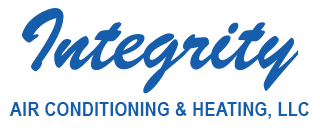
We can all benefit from saving money where we can. One of the simplest ways to do this is by improving energy efficiency throughout your home. Upgrading your HVAC system or adding a smart thermostat, for example, offers more control over your HVAC equipment, leading to a more energy-efficient home and savings on your monthly energy bills.
Keep reading to learn about 4 ways you can make energy-efficient home changes.
1. Look for Smart Home Products Like a Smart Thermostat
If you still use a round-dial thermostat and adjust it manually, think about taking a step toward the future by installing a smart, or Wi-Fi, thermostat – which contains numerous features to assist with energy efficiency.
The functionality homeowners like the most is having the capability to control their smart thermostats from wherever with their smartphone or other smart device. For instance, in situations where you forget to use your thermostat before leaving for vacation, you can just use your smartphone and make the necessary adjustment.
Like a programmable thermostat, a smart thermostat enables you to schedule your home’s temperature according to the time of day and day of the week so you’re not spending energy on an empty house. Smart thermostats also have the capability to watch your temperature preferences over time and automatically make energy-efficient corrections. They can even create monthly energy reports that illustrate how much energy you've used and when so you can make modifications to save money.
If you’re wanting to know how to secure a free smart thermostat, talk to your utility company to learn if there are any discounts or free smart thermostats available.
2. Regularly Scheduled Tune-Ups for Your HVAC System
Sadly, lots of homeowners often forget to have their heating and cooling systems maintained. While this may not seem like a problem, ignoring maintenance could result in a number of issues, including inefficiency, breakdowns, and a shorter system lifespan.
During an HVAC maintenance service, the technician will evaluate your HVAC system, clean important components, and identify minor flaws before they produce bigger, more expensive repair issues. Maintenance keeps HVAC systems functioning at optimal condition, which means they use less energy to heat and cool your home. This will help with your energy bills, prolong the lifespan of HVAC equipment, and lead to fewer repairs.
We suggest two HVAC tune ups each year – once during the spring before summer and one during the fall before the arrival of cold weather.
3. Replacing Your Old, Inefficient HVAC Equipment
Regretfully, like all appliances, HVAC systems can't run forever and inevitably need to be replaced. New heaters and cooling systems are much more energy efficient than equipment produced just over 10 years ago. Fortunately, helpful HVAC companies like Integrity AC & Heating LLC can handle professional services including furnace installation in Phoenix.
Well-maintained furnaces and air conditioners can run for approximately 15-20 years. If your systems are within that timeframe, it is often be a good idea to replace them now to minimize the risk of premature equipment failure that can leave you cold and uncomfortable if it’s a cold winter night. If your system is about 15 years old and needs an expensive repair, it’s definitely time to replace it. As reported by the U.S. Department of Energy, upgrading to a new HVAC system could save you about 20-40% on your monthly energy bills, so you’ll recoup some of the costs of installing a new system.
A professional comfort technician can help you determine the most energy efficient HVAC system available. As a general rule of thumb, look for HVAC systems that are Energy Star certified, which means the equipment fulfills strict guidelines established by the U.S. Environmental Protection Agency. LENNOX HVAC systems are some of the most efficient systems on the market, featuring both high AFUE and SEER ratings. AFUE is intended for heating systems and measures how well they convert fuel to heat. SEER, in the meantime, is used to calculate the energy efficiency of air conditioning systems.
Contact a reputable HVAC provider like Integrity AC & Heating LLC for air conditioning installation in Phoenix.
4. Use Energy-Efficient Air Filters
If you’re searching for new HVAC filters, consider that not all air filters are capable of providing the same results. Certain air filters are far more efficient than others, contributing to lower energy bills and a cleaner home environment.
The efficiency of HVAC air filters is scored by their Minimum Efficiency Reporting Value, or MERV rating. The MERV scale ranges from 1-20; the higher the number, the more effective the filters are. It’s relevant to note, however, that high-efficiency air filters can in fact restrict airflow too much according to the type of HVAC system you have. It’s worthwhile to study the owner’s manual before getting a filter to find the best option for your system.


